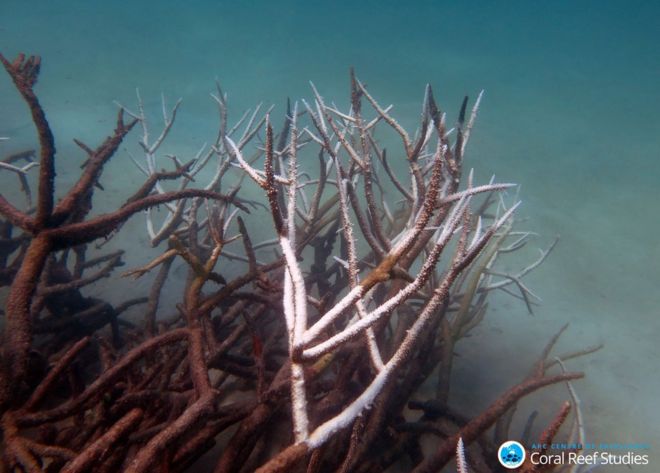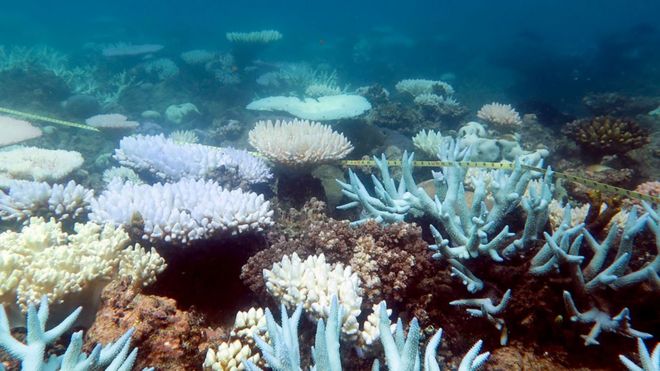MULTIZ321
TUG Member
- Joined
- Jun 6, 2005
- Messages
- 31,348
- Reaction score
- 9,013
- Points
- 1,048
- Location
- FT. LAUDERDALE, FL
- Resorts Owned
-
BLUEWATER BY SPINNAKER HHI
ROYAL HOLIDAY CLUB RHC (POINTS)
Bleaching is Killing a Third of Coral in the Great Barrier Reef's North by Kristen Gelineau/ AP/ World/ Australia/ time.com
"This is the third and most extreme mass bleaching event in 18 years to strike the Great Barrier Reef.
(SYDNEY) — Mass bleaching has killed more than a third of the coral in the northern and central parts of Australia’s Great Barrier Reef, though corals to the south have escaped with little damage, scientists said on Monday.
Researchers who conducted months of aerial and underwater surveys of the 2,300-kilometer (1,400-mile) reef off Australia’s east coast found that around 35% of the coral in the northern and central sections of the reef are dead or dying, said Terry Hughes, director of the ARC Centre of Excellence for Coral Reef Studies at James Cook University in Queensland state. And some parts of the reef had lost more than half of the coral to bleaching.
The extent of the damage, which has occurred in just the past couple of months, has serious implications, Hughes said..."

Mature stag-horn coral bleached at Lizard Island, Great Barrier Reef off the eastern coast of northern Australia. Photo released May 30, 2016.
Richard
"This is the third and most extreme mass bleaching event in 18 years to strike the Great Barrier Reef.
(SYDNEY) — Mass bleaching has killed more than a third of the coral in the northern and central parts of Australia’s Great Barrier Reef, though corals to the south have escaped with little damage, scientists said on Monday.
Researchers who conducted months of aerial and underwater surveys of the 2,300-kilometer (1,400-mile) reef off Australia’s east coast found that around 35% of the coral in the northern and central sections of the reef are dead or dying, said Terry Hughes, director of the ARC Centre of Excellence for Coral Reef Studies at James Cook University in Queensland state. And some parts of the reef had lost more than half of the coral to bleaching.
The extent of the damage, which has occurred in just the past couple of months, has serious implications, Hughes said..."

Mature stag-horn coral bleached at Lizard Island, Great Barrier Reef off the eastern coast of northern Australia. Photo released May 30, 2016.
Richard
Last edited:


